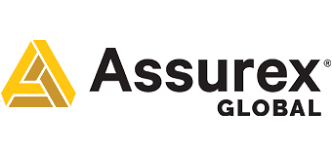October 2023
The topics covered in our current newsletter are: “Calculation parameters of social security contributions in 2024″, “Reform recommendations of the focus group on private pensions”, “Consideration of sustainability preferences in insurance investment products”, and “sv.net – what is it and what will change in 2024?”.
Table of Contents
- Calculation parameters of social security contributions in 2024
- Reform recommendations of the focus group on private pensions
- Consideration of sustainability preferences in insurance investment products
- sv.net – what is it and what will change in 2024?
Calculation parameters of social security contributions in 2024
On October 11, 2023, the “Social Security Calculation Sizes Ordinance 2024” was passed by the German cabinet. The adjustment due on January 1, 2024 is based on a wage development of 4.13% in 2022 for the whole of Germany and 3.93% in the old federal states. Accordingly, the social security contribution ceiling (SSCC) for pension and unemployment insurance will increase from €7,300/month to €7,550/month (East: from €7,100/month to €7,450/month). The nationally uniform compulsory insurance salary limit in statutory health insurance will rise from €5,550/month to €5,775/month, while the SSCC in statutory health insurance, which is also uniform throughout Germany, will rise from €4,987.50/month to €5,175/month in 2024.
The ceilings in social insurance are decisive for the tax and social security contributions for company pensions.
Irrespective of these calculation parameters, the additional contribution introduced in the statutory health insurance system in 2009 will also rise, although according to the current result of the responsible estimator group it will probably be less than feared (the additional contribution is between 0.9% and 1.8% depending on the health insurance fund and on average 1.6% of gross income up to a maximum of the SSCC in state health insurance). Instead of the 0.2 to 0.4 percentage points forecast by the health insurance funds until recently (this would correspond to an additional financial requirement of 3.5 to 7 billion euros), an increase of 0.1 percentage points is now expected (i.e. from an average of 1.6 to 1.7%), according to the Federal Social Security Office. As with the actual health insurance contribution, employers and employees share the additional contribution equally.
Reform recommendations of the focus group on private pensions
There now seems to be some movement on the fundamental reform of private pensions sought by the governing coalition. After the focus group on private pensions set up by the Federal Ministry of Finance presented its final report, there is – in addition to several other statements and concept proposals from a wide range of associations and groups – an alternative demand from four of the five so-called economic experts, i.e. the members of the German Council of Economic Experts.
The final report makes a recommendation for a private pension scheme that is as simple, transparent and easy to explain as possible, based on the following assumptions: A subsidy should be open to all employed persons – i.e., including the self-employed. Inclusion in private pensions should be automatic in principle, with the possibility of a so-called opt-out. Existing products should be standardized and simplified, and there should also be a particularly high subsidy rate for lower income groups, young people and families.
Furthermore, the final report recommends allowing eligible and certified retirement savings accounts without guarantees, where the money is invested in exchange-traded index funds(so-called ETF), for example. In order to achieve higher returns than with the current Riester contracts, higher-risk variants should also be offered in the future. The economic experts recommend setting up a German sovereign wealth fund for this purpose and have warned against leaving pension protection to private providers. This is because a state-managed fund would ensure more transparent products in competition with private providers and would generate high cost-cutting pressure.
On the basis of the final report, the Federal Ministry of Finance now wants to start the legislative process and make rapid progress in 2024.
Whatever the reform of private pension provision will look like: The EPF is already an established vehicle for retirement provision that meets the criteria for returns, transparency and security.
Consideration of sustainability preferences in insurance investment products
Since August 2, 2022, information on the customer’s sustainability preferences must be requested when advising on financial investments and when brokering insurance investment products (so-called ESG query). However, the regulatory requirements for inquiring about sustainability preferences are so complex that practical implementation in the advisory process is hardly feasible. This is shown by the comments on a “Call for Evidence” for application in the advisory process on financial investments of the European regulatory and supervisory authority of the EU (ESMA). Even though this “Call for Evidence” only refers to financial investment intermediaries, the situation is not significantly different for insurance intermediaries. In particular, the tripartite division of preference options according to.
a) “EU taxonomy” (classification system that translates the EU’s climate and environmental objectives into criteria for certain economic activities for investment purposes),
(b) sustainable investments under the provisions of the Disclosure Regulation (investment in an economic activity that contributes to the achievement of an environmental objective or social objective, provided that the investment does not significantly compromise such objectives and that the companies in which investment is made apply good governance practices); and
(c) “PAIs” (Principal Adverse Impacts – adverse effects of investment decisions on environmental, social and employment sustainability factors, respect for human rights, and anti-corruption and anti-bribery)
leads to a level of complexity that is neither manageable for advisors, intermediaries nor clients, so that the important issue of integrating sustainability aspects into the financial world risks falling by the wayside. It therefore remains exciting to see how the regulatory requirements – or more precisely in this case “recommendations for action” – are adapted in such a way that an important topic becomes manageable for all those involved, and especially for customers.
At Profion and its parent company SÜDVERS, principles of sustainability are integrated into all decision-making processes and clear exclusion and positive criteria for investments are defined, compliance with which is continuously monitored.
sv.net – what is it and what will change in 2024?
sv.net could be briefly explained as “social security on the Internet.” Employers can use sv.net to transmit social security notifications, contribution statements or the digital wage statement for accident insurance electronically and in encrypted form outside of payroll accounting. However, sv.net does not perform the calculation of remuneration, taxes or social security contributions. It is therefore a programmatic option for the creation and retrieval of supplementary notifications for employers. In addition, employers and self-employed persons apply for and send their A1 posting certificates automatically via sv.net (A1 posting certificates document the social security status in the home country for postings to other European countries).
Currently, the use of sv.net works via the company number. Self-employed persons without their own employees do not need a company number to use the A1 posting certificate function.
There are currently two variants of sv.net:
The sv.net/standard is a browser-based application with no need for installation and no possibility for caching. The sv.net/comfort is a computer-based application via local installation and with the possibility of intermediate storage of company and personnel master data. Both versions are free of charge up to a certain usage volume. Above a defined usage volume (>300 notifications per year, multiple company numbers/users), companies currently move to the paid premium model.
What will now change at sv.net in 2024?
On October 4, 2023, the new sv-reporting portal started, which is to replace sv.net by the end of 2023. Reports via sv.net will still be possible from January 1, 2024 – February 29, 2024 as a transitional measure, but by then it will no longer be possible to retrieve feedback. From 01.03.2024 sv.net will be completely switched off. The transmission channel will then only function via sv-meldeportal.de.
Transitional exceptions: Still transitionally possible via sv.net are:
- Retrieval of A1 certificates
- Retrieval of eAU certificates
These are the new features of sv-meldeportal.de:
- Online data storage for the storage of remuneration data and data from social security notifications;
- User registration only possible via ELSTER certificate;
- Accessible and multilingual user interface with a design that adapts to the end device.
Our practical tip:
Adjust to the new sv-meldeportal.de with January 1, 2024 and register yourself and your company already today.








